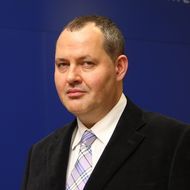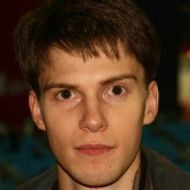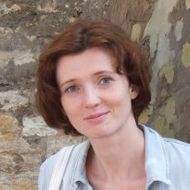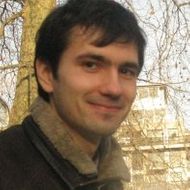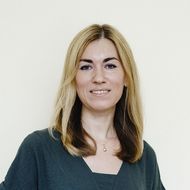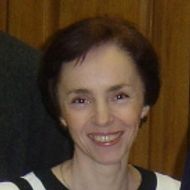- A
- A
- A
- ABC
- ABC
- ABC
- А
- А
- А
- А
- А
-
Departments
- Departments
-
Institutes and Centres
-
- Institute of Economics and Utility Regulation
- Institute for Industrial and Market Studies
- Centre for Labour Market Studies
- International Centre of Decision Choice and Analysis
- Centre of Development Institute
- Centre for Financial Research & Data Analytics
- Economic Statistics Centre of Excellence
- Anti-Corruption Centre
-
-
Laboratories
-
- International Laboratory for Macroeconomic Analysis
- International Laboratory of Stochastic Analysis and its Applications
- International Laboratory for Experimental and Behavioural Economics
- Corporate Finance Center
- Laboratory for Banking Studies
- Laboratory for Labour Market Studies
- Laboratory for Sport Studies
- Laboratory for Wealth Measurement
- Project Laboratory for Development of Intellectual Competitions in Economics
- Laboratory for Spatial Econometric Modeling of Socio-Economic Processes in Russia
-
- Department of Financial Market Infrastructure
- ICEF
-
Educational Programmes
- Bachelor's Programmes
-
Master's Programmes
-
- Economics and Economic Policy
- Agrarian Economics
- Stochastic Modeling in Economics and Finance (Previously, Master's in Statistical Modelling and Actuarial Science)
- Statistical Analysis in Economics
- Economic Analysis (Online)
- Strategic Corporate Finance
- Financial Markets and Institutions
- Corporate Finance
- Financial Engineering
- Master of Business Analytics (Online)
- Investments in Financial Markets (Online)
-
- Doctoral Programmes
-
Faculty
109028, Moscow,
11 Pokrovsky Boulevard,
Room Т-614
Phone: (495) 628-83-68
email: fes@hse.ru
Founded in 1992, the HSE Faculty of Economics is the university’s oldest faculty. In the years since it was founded, it has gained a reputation as Russia’s leader in terms of higher economic education.
A fundamental education in modern economic theory and mathematics is combined with the study of applied disciplines, such as taxation, budget policies and processes, financial management and other related fields.
Makeeva E. Y., Popov K., Teplova O.
Frontiers in Environmental Science. 2024. Vol. 12. P. 1-14.
In press
In bk.: Oxford Research Encyclopedia of Economics and Finance. Oxford University Press, 2024.
Dagaev D., Paklina S., Parshakov P.
Social Science Research Network. Social Science Research Network. SSRN, 2024
Research activity
Faculty of Economic Sciences includes a number of research teams; their achievements prove not only that they are leaders in Russian science, but also that they are making important contributions to the global scientific agenda. In particular, it is worth highlighting research in mechanism design by P.Andreyanov and financial economics research by A. Bulatov, published in the Review of Economic Studies(RES). RES is in the economics and finance TOP5.
The value of Faculty of Economic Sciences in the global market is emphasized by the availability of foreign scientists who permanently cooperate with the university: E. Maskin (Harvard, Nobel Prize in Economics, 2007), M. Janssen (University of Vienna), B. Taub (University of Glasgow), and others. It is worth noting that F.Aleskerov from HSE is the only Russian partner in COST Action IC1205 EU’s program, devoted to the computational social choice theory and V.Avtonomov is the President of the European Society for the History of Economic Thoughts.
HSE’s internationally-recruited academic specialists and international laboratories play a critical role in the university’s research development.
Faculty Laboratories and Centers
International Research Seminar Series
Students' Research
International Recruitment and Job Market Seminars
International Centre of Decision Choice and Analysis
Academic Supervisor: Professor Eric Maskin, Nobel Prize winner
The laboratory’s research areas include: economic mechanism design, models of choice for a large number of alternatives, power distribution in groups, application of game theory and social choice theory methods to the modelling of coalitional preferences, aggregation models on majority graph, criteria importance theory and the theory of additive utility functions, stability of optimal representation of objects and images, measures of informativeness defined by the set of attributes of non-deterministic systems, Intelligent data analysis, manipulation in social choice models, models of fair division, mathematical models of the organization of public-private partnerships and the study of their mathematical properties, analysis of the operating efficiency of commercial banks, automatic interpretation and classification of text documents, modelling of stock exchange processes, mathematical models of the high education system, and ranking scientific journals with respect to bibliometric indicators.
The International Laboratory of Decision Choice and Analysis focuses most of its research on the theory of individual, social and multi criterial choice, mathematical modelling and empirical analysis of decision-making in various economic and political institutions, game-theoretic models and methods in economics and political theory, and data analysis (methods of clustering, pattern recognition, etc.). We have close contacts with foreign universities. Students and postdocs from abroad come to our lab, and our senior members often give lectures at Western universities. Many well-known scientists come to our lab, work with our young colleagues, and give lectures. We are involved in the development of many applied projects, from retail networks to banking, from scheduling to public-private partnerships, and from networks to big data analysis. We will be happy to give our guest students the opportunity to participate our theoretical and/or applied projects.
Center for Institutional Studies
Head: Associate professor Maria M. Yudkevich
The Center for Institutional Studies (CInSt) goal is two-folded: to create a scientific center in the field of institutional economics as part of an international cooperation network and to promote international standards of research. We provide conditions and incentives for young and talented university graduates to participate in both scientific and teaching activities at HSE. Our professional interests are focused on institutional analysis of various markets and sectors of the economy. Among them are education, procurement, banking, and nonprofit organizations. The Center unites several laboratories:
International Research Laboratory for Institutional Analysis of Economic Reforms (LIA)
Head: Associate professor Maria Yudkevich
The International Research Laboratory for Institutional Analysis of Economic Reforms (LIA) brings together faculty, postgraduates and students from the departments of Economics, Sociology and Psychology; the lab’s professional interests are focused on the empirical institutional analysis of various markets and sectors of the economy. LIA members combine teaching with research. Its researchers engage both in their own research and LIA-wide projects, including economics of education, economics of public procurement, institutional analysis of banking.
Laboratory of Stochastic Analysis and its Applications
Head: Professor Valentin Konakov
International Laboratory of Stochastic Analysis and Its Applications gathers together researchers from various countries (Germany, France, Russia, UK) and from different schools but linked by close research interests. The Laboratory was created on the basis of a long collaboration history (Konakov – Mammen, Konakov – Menozzi, Belomestny – Panov), and research interests of all members of the group are quite close to each other. The general aim is to improve theoretical background and to develop practical methods for different stochastic models, to combine and share knowledge and ideas of leading international researchers to advance in several directions of the modern stochastic analysis.
Head: Professor Irina V. Ivashkovskaya
Corporate Finance Center (CFC) is committed to promote high quality research on the application of financial theory and techniques to real world corporate financial policies, corporate performance and corporate governance studies. CFC aims to develop new knowledge in emerging markets and to provide a forum for discussing empirical corporate finance results. CFC publishes quarterly e-Journal of Corporate Finance Research.
Laboratory for Labour Market Studies
Head: Professor Sergey Roshchin
Laboratory research areas are: contract theory in labor economics, labor market and gender, top-managers’ labor market, labor market, human capital and demographic processes, Interaction between labor and education markets.
Laboratory for Comparative Analysis of Post-Socialist Development
Head: Assistant Professor Vladimir Karacharovskiy
The Laboratory for Comparative Analysis of Post-Socialist Development conducts fundamental and applied interdisciplinary research. The focus of the research is the interconnection of cultural-civilization types of societies in Europe and Asia and the level of development of national economics in post-socialist countries in the globalization context. Other field of our interest is civilization factors of possible directions of development of social relations in post-socialist countries. The laboratory publishes an independent scientific journal «Universe of Russia» about destiny and perspectives of Russia.
International Laboratory of Macroeconomic Analysis
Head: Professor Sergey E. Pekarski
The Laboratory’s primary areas of interest: scholarly research through individual and collective projects in the field of general modern macroeconomics, macroeconomic theory and modern Russian politics; the development of computable general equilibrium models; the conduct of a series of theoretical and empirical research projects whose aim is to fill in the gaps in understanding of the macroeconomic theory of the modern Russian economy; the identification of inadequacies of Western macroeconomic theory in relation to the specific features of the Russian economy. Description of the properties of the macroeconomic dynamics of the Russian economy using stylized facts. Analysis of fiscal and monetary politics.
Centre for Financial Research & Data Analytics
Head: Professor Tamara Teplova
The Laboratory was established with a view to promoting scientific and applied developments for the analysis of capital markets, derivatives, securities issuers, and financial intermediaries. The Lab’s main subjects of research include issues of conducting analysis of performance and government regulation of financial markets and their constituents (including regulators, financial intermediaries, securities issuers and individual securities that constitute the market). The Lab’s tasks lie in three fields: research, communication (network interaction), and education. The Laboratory is designed to provide HSE teaching staff and students with a qualitative incentive for joint research projects in the analysis of evolution and performance issues of financial integrated and segmented markets as well as for investigation into motivation, behavior, and strategy of investors and regulators.
Laboratory of Macro-Structural Modeling of Russian Economy
Head: Professor Gregory Kantorovich
The main research goal of the Laboratory is the quantitative modeling of both separate sectors of Russian economy and the Russian economy as a whole. Among models developed by the Lab’s researchers are the DSGE model of Russian economy, a model of Russian banking sector, a model of interregional migration in Russia, models of industrial unemployment, SFA models of influence investments on branch productivity. An important characteristic of all the Laboratory’s research is that it takes into account the heterogeneity of economic agents. Such modeling requires exploiting real statistics and contemporary econometric methods. New modifications of these methods are under development in the Laboratory.
- About
- About
- Key Figures & Facts
- Faculties & Departments
- International Partnerships
- Faculty & Staff
- HSE Buildings
- Public Enquiries
- Studies
- Admissions
- Programme Catalogue
- Undergraduate
- Graduate
- Exchange Programmes
- Summer University
- Summer Schools
- Semester in Moscow
- Business Internship
-
https://elearning.hse.ru/en/mooc/
Massive Open Online Courses
-
https://www.hse.ru/en/visual/
HSE Site for the Visually Impaired
-
http://5top100.com/
Russian Academic Excellence Project 5-100
- © HSE University 1993–2024 Contacts Copyright Privacy Policy Site Map
- Edit
